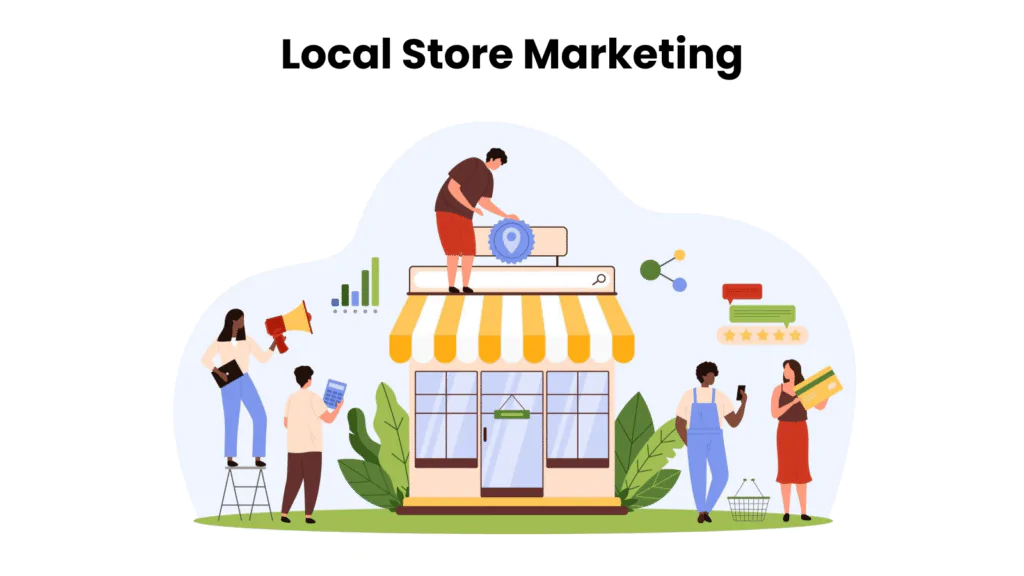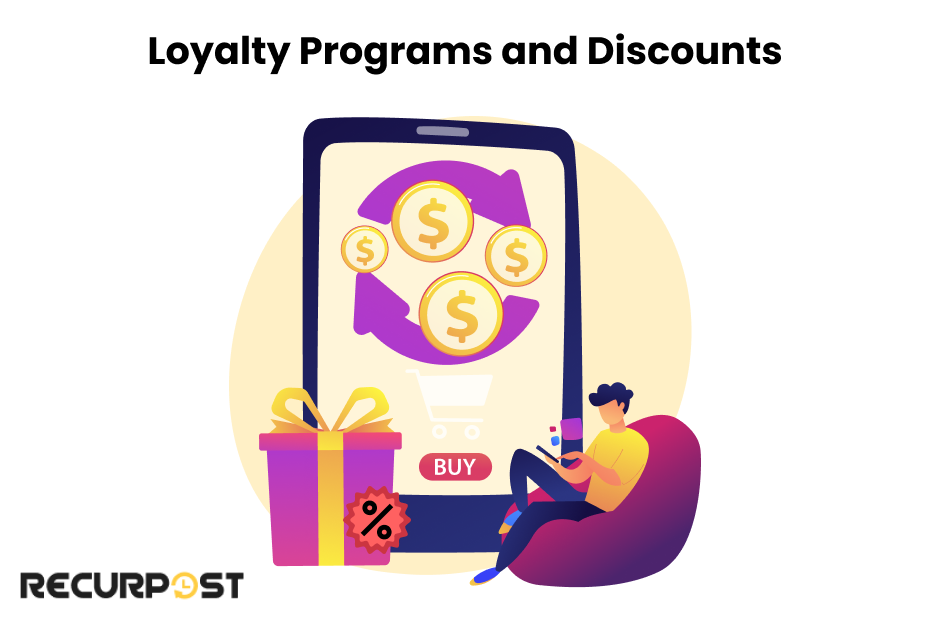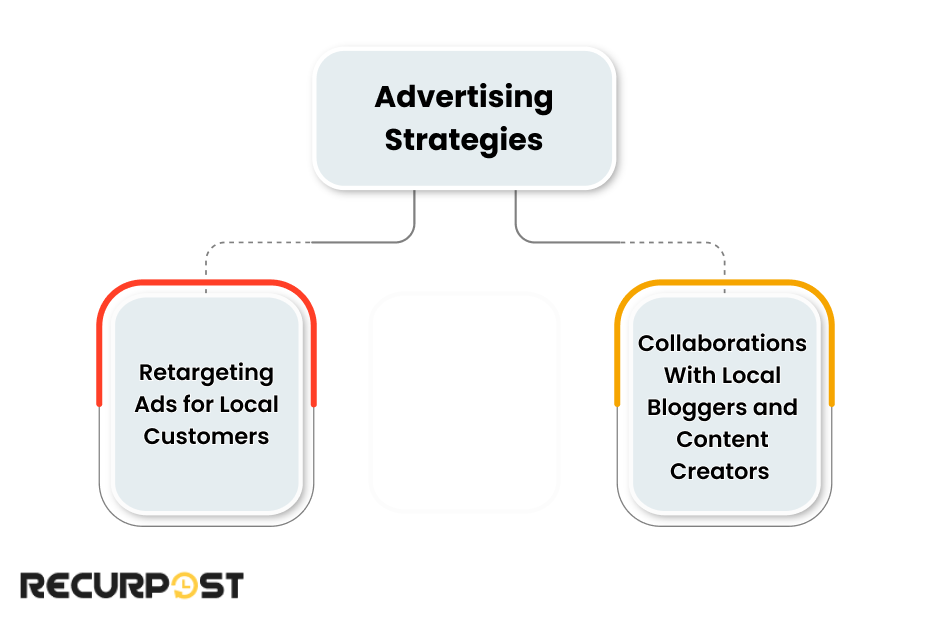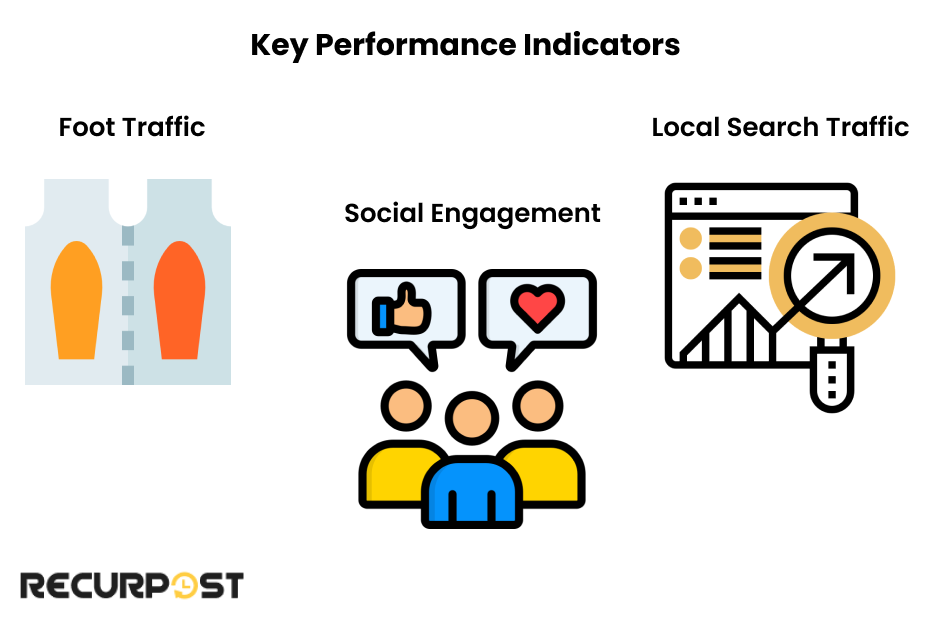Why travel across town when top choices are next door? Local marketing means shopping at neighborhood businesses, supporting local community members, and helping nearby shops or service providers grow.
Most small businesses depend on local marketing to reach local customers, drive sales, and boost community engagement.
Community-based marketing, proximity marketing, and geo-targeted advertising are vital for regional customer loyalty. These methods make it easier for businesses to connect with people close by and grow their brand awareness.
Local marketing strategies for small businesses use location-based marketing and local SEO strategies. These approaches help companies appear in local search results and stand out in local business directories. When brands use local marketing tools and focus on geographic targeting, they attract new customers, improve local search visibility, and raise local brand awareness.
The Basics of Local Marketing
Local marketing, also known as neighborhood marketing or hyperlocal marketing, targets customers in a set geographic area. Businesses use it to reach people in a city, zip code, or even a five-mile radius. Local marketing strategies focus on location-based messaging and geo-targeted advertising to connect with local audiences.
Tailoring offers and campaigns helps brands build community engagement, raise local brand awareness, and increase foot traffic to retail stores or service businesses. Community involvement and local SEO strategies support stronger ties with area customers.
The Numbers Game of Local Marketing
- 80% of US consumers search online for local businesses every week.
- The most valuable local SEO services are Google Business Profile management (76%) and content creation (53%).
- In 2023, local marketing saw a huge increase in “near me” searches. This trend highlights the importance of local search optimization.
- 4 in 5 consumers use search engines to find local information.
- 76% of consumers who search for “near me” visit a business within a day. [Source- Backlinko]
Why It Matters for Small Businesses
Small businesses depend on local customers for growth and sustainability. Community engagement through sponsorships and events builds strong relationships and brand recognition.
The most effective local marketing strategies blend online and offline tactics. These include local SEO, geo-targeted advertising, community involvement, local influencer collaborations, social media local marketing, and print advertising.
Using local business directories, hosting local events, and encouraging customer reviews improve local search visibility and bring more foot traffic to your store or service location. These efforts boost engagement and build regional customer loyalty for lasting growth.
The Three Marketing Types Differentiated
Here are the key differentiating factors:
1. Target Audience
- Local marketing focuses on attracting customers in a set area, like a neighborhood, city, or region.
- Online marketing reaches people across different locations using digital channels.
- Global marketing aims for international audiences to build worldwide brand awareness and grow a global customer base.
2. Strategy & Approach
- Local marketing strategies rely on community engagement, local events, and cross-promotions with nearby businesses.
- Online marketing uses tools like email marketing, social media, and search engine optimization to reach wider audiences.
- Global marketing builds campaigns for different regions, using multilingual content and global social media ads to match local cultures.
3. Channels & Tools
- Local marketing uses Google Business Profile, local business directories, location-based ads, and local influencer collaborations.
- Online marketing relies on platforms like Facebook, Instagram, Google Ads, and targeted email marketing.
- Global marketing uses global e-commerce platforms, international ad campaigns, and multilingual websites to connect with customers worldwide.
4. Examples
- Local marketing example: A coffee shop partners with a local influencer to launch a seasonal drink, boosting foot traffic and local brand awareness.
- Online marketing example: A fitness e-commerce brand runs Instagram ads targeting users nationwide, attracting customers from multiple cities.
- Global marketing example: A tech company launches an international campaign with translated content, reaching customers in several countries and building a worldwide presence.
Types of Local Marketing
Local marketing encompasses several distinct approaches that businesses can use to reach their community:
1. Hyperlocal Marketing
Hyperlocal marketing targets customers in a narrow geographic area, such as one neighborhood or even a few city blocks. Proximity marketing uses location-based mobile notifications, geo-targeted advertising, and local social media campaigns to connect with people nearby. This approach is ideal for driving foot traffic and capturing “near me” searches from customers within a one-mile radius.
2. Community-Based Marketing
Community-based marketing means building relationships by joining local events, sponsoring neighborhood programs, and partnering with community organizations. These efforts support local brand awareness, increase regional customer loyalty, and help businesses become trusted members of their community. Strong community engagement leads to lasting customer relationships and positive word-of-mouth.
3. Geo-Targeted Digital Marketing
Geo-targeted digital marketing reaches customers through their specific geographic location using digital tools. Local SEO strategies, geo-targeted ads, and GPS-based mobile notifications increase local search visibility and help businesses appear in “near me” results. Brands use these tactics to target nearby customers and boost conversion rates for local offers.
4. Neighborhood Retail Marketing
Neighborhood retail marketing attracts customers from nearby residential areas with storefront displays, local print advertising, and customer referrals. Retail stores benefit from local content marketing, community events, and placement in local business directories to raise foot traffic and grow local brand awareness.
Local Marketing Examples in Action
Local marketing campaigns demonstrating how businesses successfully connect with their communities in the real world:
Retail Store Example
A neighborhood bookstore teams up with coffee shops for reading events, introduces a resident loyalty program, and sponsors school reading initiatives. Their social media shares updates on community book clubs and local authors, boosting community engagement, brand awareness, and in-store foot traffic.
Service Business Example
A plumbing company covers targeted neighborhoods with door hangers, updates profiles in business directories, and sponsors youth sports teams. Satisfied clients are prompted to leave Google Business Profile reviews. They also send out seasonal home maintenance reminders, increasing customer retention and improving search visibility.
Restaurant Example
A family restaurant partners with area farms for fresh ingredients, runs community fundraising nights, and designs menu items named after nearby landmarks. Social media contests and participation in food festivals help raise brand recognition and attract neighborhood diners.
Fitness Business Example
A neighborhood gym hosts free group workouts in community parks, partners with health food stores for nutrition events, sponsors sports teams, and launches a referral program for residents. These efforts drive membership signups, community reach, and stronger word-of-mouth marketing.
Current Local Marketing Trends
Local marketing continues evolving with new technologies and changing consumer behaviors:
Voice Search Optimization
Consumers now use voice assistants for “near me” searches to find nearby businesses. Adopting conversational keywords and natural language improves search visibility and helps businesses show up in local search results on smartphones and smart speakers.
Augmented Reality (AR) Experiences
Retail stores and restaurants use AR to offer interactive experiences: virtual try-ons, AR product demos, and digital menus boost engagement. These tools help drive foot traffic, increase social engagement metrics, and keep customers coming back.
Micro-Influencer Partnerships
Partnering with micro-influencers with dedicated neighborhood followings makes campaigns more authentic and cost-effective. These collaborations help raise community engagement, boost brand awareness, and increase customer reviews and testimonials.
Sustainability-Focused Marketing
Businesses attract environmentally conscious shoppers by highlighting eco-friendly practices, supporting local sourcing, and leading community environmental programs. This strategy drives positive brand recognition and attracts new customers seeking green choices.
Mobile-First Local Experiences
Companies improve the customer journey by building mobile-optimized sites, offering mobile payments, and adding geo-targeted mobile app features. These steps raise user satisfaction, drive higher conversion rates, and increase foot traffic from mobile users.
Quick Local Marketing Tips for Immediate Impact
These actionable tips help businesses improve their local marketing efforts right away:
Online Presence Tips
- Claim and verify every listing in business directories.
- Keep Google Business Profile fresh with regular photos and updated posts.
- Reply to all customer reviews within 24 to 48 hours.
- Add local keywords and location-specific details to website content and meta descriptions for better search visibility.
Community Engagement Tips
- Attend neighborhood networking events and chamber of commerce meetups.
- Volunteer for community causes and charity events.
- Partner with other businesses nearby to cross-promote.
- Sponsor local sports teams or community events for brand exposure.
Content Marketing Tips
- Share behind-the-scenes photos and stories featuring team members from your area.
- Create blogs or social posts about events and community news.
- Feature customer testimonials from neighborhood clients.
- Use hashtags and geo-tags to boost reach on social media.
Customer Experience Tips
- Give exclusive discounts to neighborhood residents.
- Build loyalty programs in partnership with other area businesses.
- Host customer appreciation nights at your location.
- Deliver standout service that encourages positive word-of-mouth referrals and online reviews.
Most Effective Local Online Marketing Strategies for Small Businesses
- Verify and update your Google Business Profile to boost search visibility and attract new customers.
- Set up landing pages for each campaign that target specific neighborhoods or cities, improving relevance for “near me” searches and driving higher conversion rates.
- Use call-only ads so potential customers can connect instantly, increasing direct leads from mobile searches.
- Keep business details consistent and accurate in all online directories and listings for stronger local search results and credibility.
- Build a mobile-friendly site filled with content about your area, upcoming events, and community news to reach users on any device.
- Launch a blog that covers community trends, business tips, and customer success stories, positioning your company as a trusted resource.
- Run online contests and giveaways to spark social engagement, gain user-generated content, and build a loyal following in your community.
- Create loyalty programs that reward repeat visits and referrals, turning satisfied customers into loyal brand advocates.
To manage all these strategies effectively and streamline your content planning, check out our Media Management System: Plan, Create & Track Content guide. It provides proven methods to simplify content creation, scheduling, and tracking for small businesses.
Local Store Marketing

Local store promotion targets shoppers in your area with tailored campaigns to boost brand awareness, attract new faces, and build strong ties with loyal customers.
Steps Promoting Local Store Marketing
Develop a marketing plan customized to your audience’s needs and preferences. Identify effective local marketing tactics, create a budget, and establish a timeline for implementation.
Here are local marketing strategies and how they differ from other approaches:
1. In-Store Experience & Promotions

Run discounts, offer samples, and launch in-store contests or giveaways to create excitement and attract shoppers. These promotions help stores stand out and generate word-of-mouth in the neighborhood.
2. Loyalty Programs & Discounts

Reward repeat visitors with loyalty cards, special deals, or exclusive discounts. These perks keep customers coming back and boost long-term sales. Example: A café offers a free drink after ten purchases.
3. Community Engagement

Get involved in local events, sponsor local festivals, and support community organizations. This builds trust, strengthens customer relationships, and raises your business’s reputation in the area.
4. Collaborations & Cross-Promotions

Collaborations and Cross-Promotions enhance local business promotion through partnerships with complementary businesses. This approach expands reach, builds community trust, and introduces brands to new customers. Joint events and shared social media campaigns amplify visibility and drive foot traffic.
5. Offline Marketing Techniques

Use local newspapers and local media to run ads and share announcements. Launch referral programs to spark word-of-mouth buzz. Take part in business expos and trade shows to connect directly with local shoppers and raise brand recognition.
Role of Social Media in Local Marketing

Social media connects small businesses with local audiences, raises brand awareness, and sparks engagement through interactive posts and conversations.
1. Google Business Profile Optimization
Create and verify your Google Business Profile to improve visibility in search results. Add updated business hours, address, photos, and customer reviews for accuracy and credibility. Businesses should verify Google My Business for accuracy and trust.
2. Local SEO Strategies
A strong online presence attracts customers from your area. Local SEO boosts search rankings and connects businesses with local audiences by adding location-based keywords, creating content about community events, and earning local backlinks.
There are two types of SEO strategies used:
A. On-Page SEO
- Research keywords to guide your content topics.
- Use on-page optimization for location-based searches.
- Add city or local phrases across your website.
B. Off-Page SEO
- Claim your Google Business Profile and other relevant directory listings.
- Build credible backlinks to your website.
- Create accounts on relevant social media platforms with a consistent brand and links back to your website.
3. Website Localization
Website localization attracts local audiences through location-specific landing pages, local event showcases, and community involvement features. Localized content, including blogs about local activities and customer success stories, connects businesses with the local community.
4. Choosing the Right Social Media Platforms
Selecting appropriate social media platforms enables effective local business promotion. Facebook and Instagram reach local audiences with targeted ads and engaging content, while LinkedIn facilitates local partnerships and B2B networking.
5. Localized Content Strategy
A content creation planner builds strong connections with local audiences. Community news, local events, and customer testimonials create authenticity, while local hashtags and geo-tags increase visibility.
6. Geo-Targeted Advertising
Geo-targeted advertising reaches customers within specific areas. Facebook and Instagram enable precise targeting through location-based ads. This approach uses GPS or mobile data to display targeted promotions when customers search for local businesses.
7. Local Influencer Collaborations
Local influencer collaborations create authentic business promotion. Influencers establish community trust, making promotions credible. Business owners partner with influencers to promote their brand within local marketing initiatives.
8. Localized Paid Ads
- Google Ads: Use location-based keywords and service-area targeting.
- Facebook Ads: Target users based on local demographics and interests.
- Local Search Ads: Pay-per-lead ads appear above organic results.
Advertising for Small Businesses in Local Marketing
Local advertising helps small businesses connect with the right audience in their community, fueling brand awareness and steady growth. Targeting customers in a specific geographic area increases foot traffic, drives more sales, and strengthens customer loyalty.
The various types of local advertising include:
1. Social Media Advertising
Social media platforms like Facebook and Instagram deliver effective paid social ads, letting small businesses target audiences by location, interests, or demographics. Direct customer interactions on these platforms help boost brand loyalty and visibility across the local area.
2. Local Print & Radio Ads
Print and radio ads reach people who still rely on local newspapers, magazines, and radio stations. Promoting special offers and events in these trusted media builds credibility with a local audience. Local chambers and community groups often expand these efforts.
3. Pay-Per-Click (PPC) Ads
PPC ads on Google Ads and Bing Ads help reach people searching for local products or services. These ads let businesses control spending, track performance, and adjust campaigns to improve their target audience reach. Location-based targeting raises conversion rates for local customers.
4. Seasonal & Event-Based Promotions
Promoting seasonal events and time-sensitive offers on social media captures the attention of local shoppers. Holiday discounts, event deals, and flash sales can boost store visits and increase brand visibility when interest is highest. This method supports industries like real estate and healthcare practices that rely on timely offers.
5. Cost-Effective Advertising Strategies

Cost is a major consideration for small businesses when choosing an advertising strategy. The aim is to maximize reach with limited budgets. Some of these strategies include:
A. Retargeting Ads for Local Customers
Remind local shoppers about products they viewed but didn’t buy. These ads target people who have already shown interest, often leading to more conversions at lower cost.
B. Collaborations with Local Bloggers & Content Creators
Partner with influencers, bloggers, or creators based in your area. Their recommendations feel authentic and help your message reach a trusted, engaged audience.
Key Takeaway
- Hyperlocal Personalization
Hyperlocal personalization focuses on creating targeted content and offers for very specific neighborhoods or even streets. This helps build stronger connections within small communities, leading to better engagement and customer loyalty.
- Influence of Word-of-Mouth
Positive experiences shared by locals amplify brand credibility and organically attract new customers.
- Seasonal Targeting
Local holidays and events ensure timely and relevant promotions, increasing engagement. These promotions are especially effective for local small business marketing.
- Exclusive Local Offers
Offering exclusive discounts or promotions for neighborhood residents builds loyalty and drives repeat visits. Loyalty programs and small business local marketing reinforce these offers.
Local Marketing Automation
Local marketing automation uses technology to streamline and manage campaigns aimed at the local community. Automation helps businesses schedule social media posts, send targeted email marketing campaigns, and manage customer follow-ups by location, saving time and boosting engagement.
Individual marketing leverages automation tools to personalize outreach for each customer, making campaigns more relevant and increasing conversion rates for local audiences.
Tools for Local Marketing Automation
1. RecurPost- RecurPost is a powerful social media management platform designed for small businesses, agencies, and brands looking to automate their social media marketing strategy effectively. It allows users to create and schedule business listings using the Google My Business scheduler.
2. Later- Later is a top social media management tool that focuses on visual planning for platforms like Instagram, Pinterest, and TikTok. It simplifies local marketing content creation by allowing users to schedule posts with a drag-and-drop calendar.
3. Buffer- Buffer is a user-friendly social media management software that allows businesses to schedule posts and track key performance indicators across various social media platforms.
Another great resource to consider is a local marketing course or a local marketing PDF for a deeper dive into strategy.
Local Marketing Resources & Tools
These resources help businesses implement and improve their local marketing strategies:
Local SEO Tools
- Google Business Profile Manager for listing optimization
- Moz Local for directory listing management
- BrightLocal for local search ranking tracking
- Whitespark for local citation building
Social Media Management
- RecurPost for automated local social media posting
- Hootsuite for multi-platform social media management
- Canva for creating local marketing graphics and visuals
- Later for visual content planning and scheduling
Review Management
- Podium for customer communication and review requests
- Grade.us for automated review generation
- ReviewTrackers for monitoring online reputation
- BirdEye for comprehensive review management
Local Advertising Platforms
- Google Ads for local search advertising
- Facebook Business Manager for geo-targeted social ads
- Nextdoor Business for neighborhood-focused marketing
- Yelp Ads for local service business promotion
Analytics & Tracking
- Google Analytics for website traffic analysis
- Google Search Console for local search performance
- Facebook Insights for social media engagement tracking
- CallRail for phone call tracking and attribution
Measuring Success in Local Marketing
Measuring success is crucial in local marketing as it helps businesses understand what works and what doesn’t. Local marketing automation platforms and local marketing companies often include built-in dashboards to make better decisions, ensure effective use of marketing budgets, and improve future campaigns.
Key Performance Indicators (KPIs)

1. Local Search Traffic: Monitor local searches through Google Analytics and Google Business Profile Insights to improve Google My Business ranking.
2. Social Engagement: Track likes, shares, comments, and follower growth to measure audience interaction.
3. Foot Traffic: Measure customer visits using in-store tracking tools or exclusive promotions.
4. Conversion Rate for Local Customers: Compare ad clicks to store visits for real performance insight.
Conclusion
Local marketing empowers small businesses to thrive. By optimizing Google Business Profile, using targeted social media campaigns, and leveraging offline promotion, local marketing companies build strong community connections and boost sales. Local marketing services and companies also guide small businesses with proven local marketing tips.
To succeed, businesses need to know their audience, choose the right online and offline platforms, and keep customers engaged. These steps drive stronger community loyalty and help small businesses compete and grow in their local area. Local marketing examples show that even simple local store marketing ideas can bring steady growth.
FAQs on Local Marketing Strategies
1. What are some of the best local marketing campaigns?
Successful local marketing campaigns include sponsoring local events, collaborating with influencers, and using geo-targeted ads. Running contests and community-focused promotions also increases brand visibility.
2. How to get local business reviews the right way?
Encourage happy customers to leave reviews through follow-up emails and incentives. Responding to reviews (both positive and negative) builds trust and boosts local SEO.
3. How can local marketing be done through emails?
Collect emails through sign-ups or in-store promotions. Send localized newsletters, event updates, and seasonal offers. Email marketing for local audiences improves retention and strengthens community reach.
4. What are some examples of a local marketing campaign?
Coffee Shop: Offers exclusive discounts for neighborhood residents.
Local Gym: Partners with a health food store for joint promotions.
Restaurant: Sponsors community sports events for brand visibility.
These are classic local marketing ideas for small businesses. The best campaigns are often created by local marketing companies or agencies offering local marketing services.
5. What is the best time to post on Google My Business?
The best time to post on Google My Business is between 9 AM and 11 AM on weekdays, especially Tuesdays and Thursdays. Posting in the morning helps your content stay visible throughout the day.
6. How can you post something on Google?
To post something on Google, create a Google Business Profile, verify it, and use the “Posts” tab to share updates, offers, or events. These posts appear in Google Search and Maps when people find your business.
7. What is the Google My Business management pricing? What is the role of GMB listing management?
Google business profile management services vary based on the services offered and the provider. Professional local business marketing services for GMB management typically range from $125 to $400 per month per profile.
The role of GMB listing management is to optimize your business’s presence on Google Search and Google Maps.
8. Why are my photos rejected on Google Business Profile?
Photos on your Google Business Profile may be rejected if they violate Google’s content policies, leading many to ask ‘Why is Google rejecting my business photos?’. Common reasons for this include poor image quality, promotional overlays, or offensive content. Make sure you upload clear and relevant images that meet Google’s guidelines.
9. How to delete a Google Business account?
To delete a Google Business account, sign in to your Business Profile Manager, choose the business you want to remove, click the three-dot menu, and select “Remove Business.”
Note: This only removes the profile from your account, not Google Search or Maps.

Debbie Moran is a Digital marketing strategist with 5+ years of experience producing advertising for brands and helping leaders showcase their brand to the correct audience. She has been a part of RecurPost since 2019 and handles all the activities required to grow our brand’s online presence.





